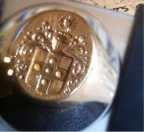Conceptual Art & Current Practice
The image above is contained in Materializing Six Years - Lucy R Lippard and the Emergence of Conceptual Art
The Dematerialization of Art is an essay written by Lippard and John Chandler and published in Art International in 1968.
The essay begins:
"During the 1960's, the anti-intellectual, emotional/intuitive processes of art-making characteristic of the last two decades have begun to give way to an ultra-conceptual art that emphasizes the thinking process almost exclusively. As more and more work is designed in the studio but executed elsewhere by professional craftsmen, as the object becomes merely the end product, a number of artists are losing interest in the physical evolution of the work of art. The studio is again becoming a study. Such a trend appears to be provoking a profound dematerialization of art, especially of art as object, and if it continues to prevail, it may result in the object's becoming wholly obsolete."
When we add the paragraph about Martin Luther King Jr. in the artifact/image above to the equation we can see, just a little bit, of the kinds of thinking prevalent at a turning point in American Art History. The book and essay are engaging and thought provoking insights into some fascinating work.
My own studies and growth have let me catch on to some of this in bits and pieces over the years. The aftermath of the despair made evident in the image above of art's inability to be used as a "political tool" has, to some degree been answered with numerous projects over the decades since the 1960s.
As R. Buckminster Fuller said, “You never change things by fighting the existing reality. To change something, build a new model that makes the existing model obsolete.”
Among projects I've found most inspiring are those involving the built environment in some meaningful or useful way.
Gordon Matta-Clark, who died in 1978, was an artist trained as an architect who engaged urban environments quite directly while simultaneously sending messages to those with a stake in the status quo, A couple of years ago The Pulitzer Foundation had an important show of Matta-Clark's work.
Sam Mockbee & DK Ruth Started Auburn's Rural Studio in the early 1990s. This combination of education, social engagement and creative architecture is a great answer to the perceived political shortcomings of 'art.'
New models for creating art and architecture are unfolding around us in response to difficult economic times and, perhaps, in response to the kinds of political change for which art is not well-suited (Guernica notwithstanding).
The Rebuild Foundation (which I've been involved in) is a contemporary example of artist/architect engagement here in St. Louis (and elsewhere) that seeks to bring needed resources to under-served communities while involving the entire community/neighborhood in the process.
Incremental, step by step approaches that increase mindfulness, educational opportunity and practical opportunity will add up over time. Inclusiveness with other communities and other community groups will expand as well.
Leadership in this realm provides alternative activities to those lamented above. And that is political after all.



<< Home